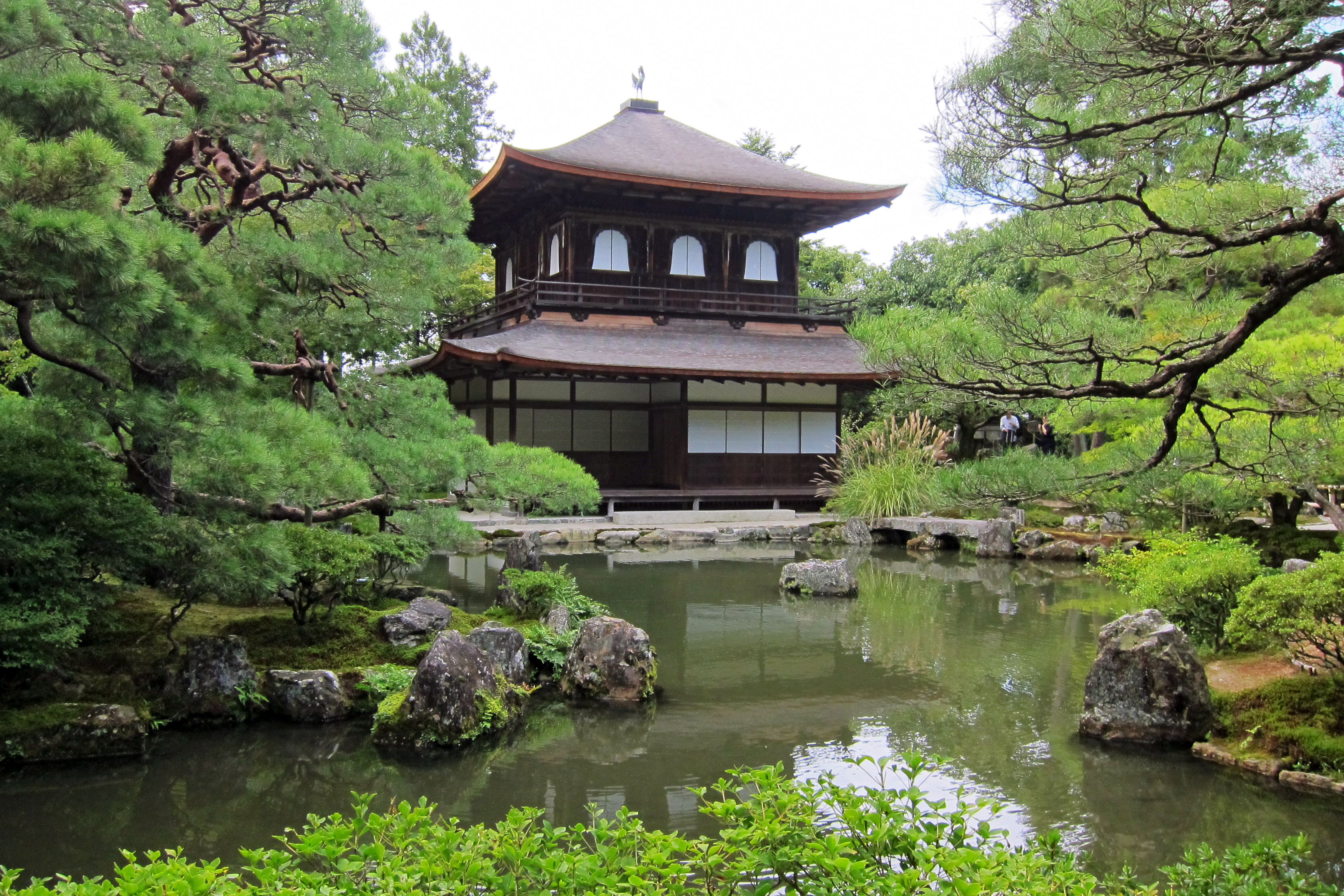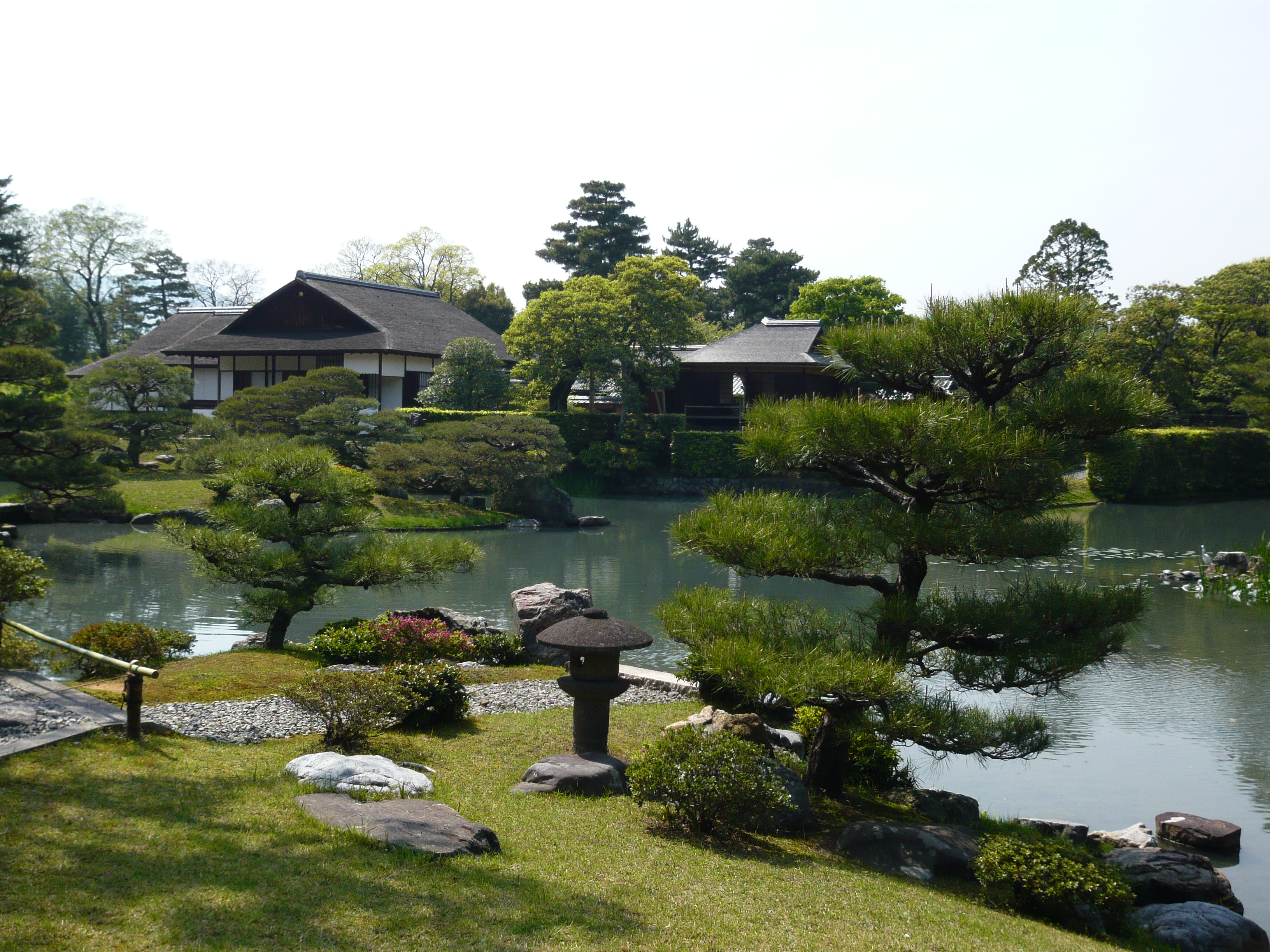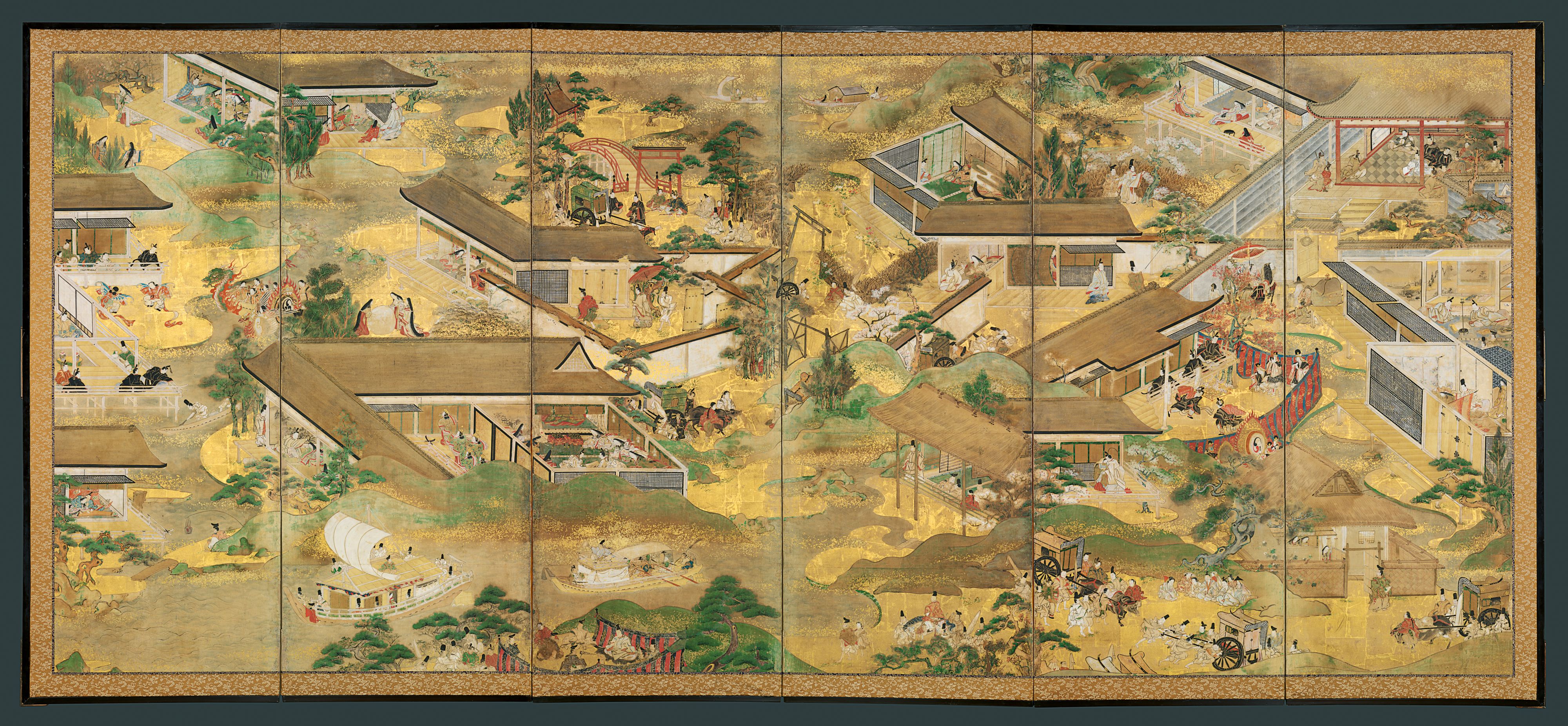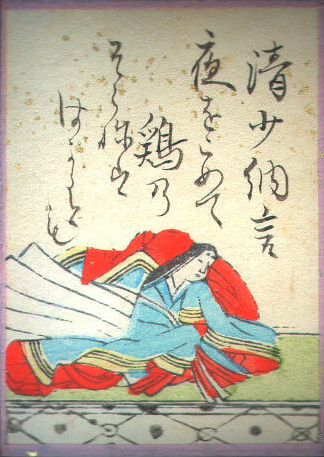Katelyn Lien
AP Japanese 🇯🇵
28 resourcesSee Units
Perspectives of Beauty and Aesthetics in Japanese Culture
Japanese aesthetics is a broad and complex topic that encompasses many concepts, including beauty, art, design, and culture. However, at its core, Japanese aesthetics emphasizes simplicity, harmony, and the appreciation of 自然 (しぜん:the natural world. Here are some fundamental principles of Japanese aesthetics:
The use of language in 能楽 theater and other art forms allows the performers to convey a sense of depth and subtlety that is not always possible through visual or physical means alone. Furthermore, by using language to evoke emotions, ideas, and images, the performers can create a sense of mystery and beauty that transcends the limitations of the physical world.
Architecture
Japanese architecture and aesthetics are closely intertwined and are characterized by a minimalistic and elegant aesthetic, a focus on natural materials, and a deep appreciation for the relationship between indoor and outdoor spaces. 侘び寂びand 間 are two essential concepts in Japanese aesthetics that have a significant impact on Japanese architecture and design. 侘び寂び is the art of finding beauty in imperfection and impermanence, and it is also closely related to the concept of ものの哀れ. In architecture and design, this means appreciating materials' natural textures and irregularities and the beauty of aging and decay.
For example, a building with weathered wooden walls, uneven floors, and exposed beams might be considered 侘び寂び, as it reflects the natural imperfections and transience of life. 間, on the other hand, is the concept of negative space, or the space between objects. In architecture and design, 間 can be seen in open spaces, such as courtyards, gardens, and atriums, which allow natural light and air to flow freely and create a sense of calm and tranquility.
東山文化(ひがしやまぶんか:East Mountain Culture) is the culture that developed in the 東山(ひがしやま:Higashiyama area of Kyoto) during 室町時代(むろまちじだい:the Muromachi period 1336-1573). This cultural movement was characterized by a focus on refined simplicity and a return to traditional Japanese aesthetics. 侘び寂び is a crucial aesthetic concept in 東山文化Many famous temples, gardens, and tea houses were built during this time.東山文化 incorporated many traditional Japanese art forms such as tea ceremony, Noh theater, haiku poetry, and painting and developed its unique style. The cultural legacy of this period continues to influence Japanese aesthetics to this day.
銀閣寺(ぎんかくじ:Ginkaku-ji Temple), also known as 慈照寺(じゅうしようじ:Jisho-ji), is was built by the 8th 将軍(しょうぐん:shogun) 足利義政 (あしかがよしまさ:Ashikaga Yoshimasa), in 1482. It was originally built as a mountain villa and was converted to a temple after the death of 義政. 銀閣寺 is a symbolic presence of 東山文化, embodying the beauty and atmosphere of the 侘び寂びaesthetic. The buildings and gardens of 銀閣寺are simple yet sophisticated works of art, with attention to every detail expressing aesthetic sensibility. 銀閣寺 was registered as a UNESCO World Heritage site in 1994 along with 16 other historic monuments and sites in Kyoto, Japan.

銀閣寺(ぎんかくじ:Ginkakuji)
By Oilstreet - Own work, CC BY 2.5, https://commons.wikimedia.org/w/index.php?curid=23497582
桂離宮(かつらりきゅう:The Katsura Detached Palace ) is another prime example of Japanese beauty and aesthetics. It is one of the imperial villas built during the early 江戸時代(えどじだい:Edo period 1603-1867), influenced by 東山文化. 桂離宮 embody these aesthetic principles with their carefully designed layout, use of natural elements such as rocks and water, and emphasis on the changing seasons. In addition, 茶室(ちゃしつ: the tea ceremony houses) and the main villa are also situated in a way that maximizes appreciation of the gardens, highlighting the Japanese appreciation for the beauty of the natural world.The villa and its associated gardens are also an important cultural property of Japan, recognized for their historical and artistic value.

桂離宮(かつうらりきゅう:Katsura Imperial Villain)
Literature
Beauty and aesthetics are essential themes in Japanese literature, and many Japanese authors have explored these concepts. Japanese literature often places a great emphasis on agin simplicity, elegance, and natural beauty.
One of the most well-known examples of Japanese literature that explores beauty and aesthetics is 源氏物語(げんじものがたり:The Tale of Genji) It is written by a noblewoman named紫式部(むらさきしきぶ:Murasaki Shikibu) during the middle 平安時代 (へいあんじだ:Heian-period :794 to 1185) . 源氏物語 is often considered the first novel in world literature and is renowned for its intricate plot, nuanced character development, and poetic prose. 54 chapters tell a self-contained story, and the novel spans over 70 years of events and contains 795 和歌(わか:Waka poems) with nearly 500 characters. The book portrays the aristocratic societ
y of 平安時代 through the protagonist,光源氏 (ひかるげんじ:Hikarugenji), and his descendants, depicting love, glory, and politics.
源氏物語 has significantly impacted later literary works, inspiring numerous new works of literature. For example, the title of the last chapter in the 54th volume, 夢の浮橋(ゆめのうきはし:pipe dream), which means the transience of life, is a beautiful phrase used many times in medieval 和歌 and has also become the title of modern and contemporary novels. Furthermore, 源氏物語 has been translated into many languages, including modern Japanese, with translations by renowned authors such as 与謝野晶子(よさの:Yosano Akiko) and 谷崎潤一郎(たにざきじゅんいちろう:Junichiro Tanizaki). It is highly regarded both in Japan and internationally and has been translated and loved in over 30 countries.
源氏物語 has been beloved by people for over a millennium, and it has also influenced the realm of art beyond literature. It has deeply penetrated the art world, especially in painting. Many excellent works of art are found in the scrolls and folding screens that depict this story.

Fifty-Four Scenes from The Tale of Genji, late 17th Century, The Met Museum
Another notable work is 枕草子(まくらのそうし:The Pillow Book)by 清少納言(せいしょうなごん:Sei Shonagon).
清少納言 was born in the mid-10th century to a family of low-ranking nobility. She entered the imperial court as a lady-in-waiting to Empress. During her time at court, she became known for her wit, intelligence, and literary talent.
枕草子 is a unique work that defies easy categorization. It is not quite a diary, a piece of fiction, or a collection of essays. Instead, it is a collage of personal reflections, court gossip, poetry, lists, and daily court life descriptions.
The title "Pillow Book" refers to the custom of using a book or journal as a pillow, which was popular among courtiers at the time.The book covers a wide range of topics, including court etiquette, fashion, love affairs, social hierarchies, and seasonal customs.
清少納言 shares her unique perspective and experiences of court life, often describing things that she finds interesting or captivating. 枕草子 provides a fascinating glimpse into the cultural and social life of 平安時代 and remains a valuable source for studying the aesthetics and customs of the time.清少納言's writing is characterized by its vivid imagery, sharp wit, and frankness. She often uses humor and satire to skewer the foibles of her fellow courtiers, and her writing is marked by a keen sense of observation and an eye for detail. Many of her observations and opinions are still relevant and relatable to modern readers, making the work a timeless classic and known for its focus on aesthetics, particularly the beauty of nature and everyday objects.

清少納言(せいしょうなごん:Sei Shonagon),
By user:Ultratomio - [1], Public Domain, https://commons.wikimedia.org/w/index.php?curid=164427
俳句(はいく:Haiku), which originated in Japan, is a type of poetry consisting of three lines. It follows a strict syllabic structure of five syllables in the first line, seven in the second, and five in the third. The haiku developed from発 (はっ:hokku), the initial three lines of a longer poem called 短歌(たん:tanka}. In the 17th century, 俳句 gained popularity as a distinct form of Japanese poetry emphasizing simplicity and natural beauty,
One of the rules of 俳句 is that it must include a 季語(きご:seasonal word)which is a word that signifies a season or time of year.季語 is an essential element of 俳句 poetry. 季語 in 俳句 is more than just a word or a symbol of a season. It is an expression of the profound nature of Japanese culture and language philosophy that reflects the Japanese people's unique aesthetic views and values. In Japanese culture, the changing seasons are closely tied to the life cycle and are seen as symbolic of the impermanence of all things. Therefore, by using 季語 in their poetry, 俳人(はいじん:haiku poets) are able to capture the transience of life and evoke a sense of wistful longing and appreciation for the beauty of the world around them.
松尾芭蕉(まつおばしょう:Matsuo Basho) (1644-1694) was a Japanese poet of the 江戸時代, known for his 俳句 which has become an important part of 日本文学 (にほんぶんがく:Japanese literature). 芭蕉's 俳句 were characterized by their simplicity, natural imagery, and Zen-like quality. He is considered one of the greatest haiku poets in Japan, and his works have been translated into many languages worldwide. In addition to 俳句, 芭蕉 also wrote prose and travelogues, including his famous work "奥の細道(おくのほそみち:English translated title- The Narrow Road to the Deep North)" which chronicled his travels through Japan.
In recent times, authors such as 三島由紀夫(みしまゆきお:Yukio Mishima) and 村上春樹(むらかみはるき:Haruki Murakami) have explored beauty and aesthetics differently. Mishima's writing often focuses on the beauty of physicality, while Murakami's works often explore the beauty of mundane, everyday life.
Browse Study Guides By Unit
👨👩👧Unit 1 – Families in Japan
🗣Unit 2 – Language & Culture in Japan
🎨Unit 3 – Beauty & Art in Japan
🔬Unit 4 – Science & Technology in Japan
🏠Unit 5 – Quality of Life in Japan
💸Unit 6 – Challenges in Japan
🧐Exam Skills
📚Study Tools

Fiveable
Resources
© 2025 Fiveable Inc. All rights reserved.